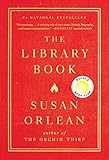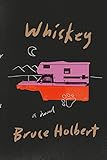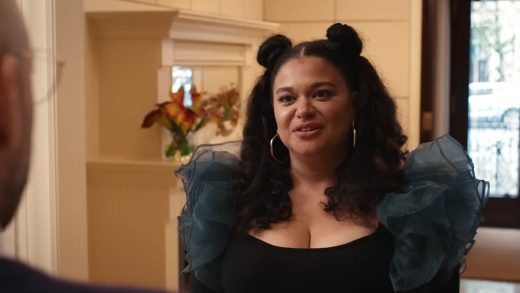I suffer from reading amnesia quite terribly. I often joke to my students that the only book I reliably remember having read is Lolita. I also suffer from the particular anxiety that comes with knowing too many writers: I feel certain I am going to alienate friends and further alienate enemies with any list I might compile. Well, dammit, here goes:
I loved Michael Kupperman’s graphic memoir All the Answers. Kupperman’s father was Joel Kupperman, one of television and radio’s Quiz Kids, and the book examines all sorts of American concerns, and personal ones, too: celebrity, propaganda, secrets, and grace.
 I reread two of my favorite very short novels, So Long See You Tomorrow by William Maxwell and Tinkers by Paul Harding, both works of genius, generosity, and above all strangeness: I was struck by how both books go where they want to go, assume their own shapes, and though in some way they are realistic, they are also eccentric in their very souls. (I also noted that somehow my first edition personally inscribed Tinkers has lipstick on it, which makes it even more valuable to me.)
I reread two of my favorite very short novels, So Long See You Tomorrow by William Maxwell and Tinkers by Paul Harding, both works of genius, generosity, and above all strangeness: I was struck by how both books go where they want to go, assume their own shapes, and though in some way they are realistic, they are also eccentric in their very souls. (I also noted that somehow my first edition personally inscribed Tinkers has lipstick on it, which makes it even more valuable to me.)
 Technically I read Jamel Brinkley’s first collection of stories, A Lucky Man, at the very end of 2017, but it came out this year and good grief is it good. I got sucked in first by the very sentences—Brinkley is surely one of the finest prose writers we’ve got; I feel confident in saying that with one book of evidence—but he’s also, like the best writers, a peculiar balance of enveloping compassion and necessary ruthlessness. I can’t wait to read his next book.
Technically I read Jamel Brinkley’s first collection of stories, A Lucky Man, at the very end of 2017, but it came out this year and good grief is it good. I got sucked in first by the very sentences—Brinkley is surely one of the finest prose writers we’ve got; I feel confident in saying that with one book of evidence—but he’s also, like the best writers, a peculiar balance of enveloping compassion and necessary ruthlessness. I can’t wait to read his next book.
 Wild Milk by Sabrina Orah Mark—oh, I can’t even figure out how to describe this strange and gorgeous book. It’s a collection of stories. It’s very strange. It’s very beautiful. Mark has a mind like no other. You need to read it.
Wild Milk by Sabrina Orah Mark—oh, I can’t even figure out how to describe this strange and gorgeous book. It’s a collection of stories. It’s very strange. It’s very beautiful. Mark has a mind like no other. You need to read it.
Margaret Wilkerson Sexton’s A Kind of Freedom is a novel about three generations of a New Orleans family, cut back and forth so that each generation can whisper in the other’s ears, beautifully intimate and heartbreaking, and also a portrait of America. The book was longlisted for the National Book Award in 2017 but I don’t think it got nearly enough attention.
 Susan Orlean’s The Library Book reminded me of the grown-up version of the reference books I loved as a kid (The Book of Lists, The People’s Almanac), though it’s not a reference book. It’s a portrait of the Los Angeles Public Library, kind of, but it, too, goes where it wants and needs to go. It’s just so crammed with facts and anecdotes, all of them interesting and lucid, many of them deeply strange. Orlean has a Dickensian knack for describing people (living and historical) the minute they appear so that they are instantly palpable: there are so many people interfiled with all those books. It also gives a better sense of what it’s like to work in a big urban library than anything I’ve ever read.
Susan Orlean’s The Library Book reminded me of the grown-up version of the reference books I loved as a kid (The Book of Lists, The People’s Almanac), though it’s not a reference book. It’s a portrait of the Los Angeles Public Library, kind of, but it, too, goes where it wants and needs to go. It’s just so crammed with facts and anecdotes, all of them interesting and lucid, many of them deeply strange. Orlean has a Dickensian knack for describing people (living and historical) the minute they appear so that they are instantly palpable: there are so many people interfiled with all those books. It also gives a better sense of what it’s like to work in a big urban library than anything I’ve ever read.
 Bruce Holbert‘s Whiskey is a twisty, hilarious, dark story about two brothers on a mission in Washington State, with one of the most original and wrenching ends of a novel I’ve ever read.
Bruce Holbert‘s Whiskey is a twisty, hilarious, dark story about two brothers on a mission in Washington State, with one of the most original and wrenching ends of a novel I’ve ever read.
And I read two books that will be published in the new year: The Heavens by Sandra Newman, a disorienting stunner of a novel, with characters as brilliant as its ideas; and Where Reasons End by Yiyun Li, which is, simply, a masterpiece.
More from A Year in Reading 2018
Do you love Year in Reading and the amazing books and arts content that The Millions produces year round? We are asking readers for support to ensure that The Millions can stay vibrant for years to come. Please click here to learn about several simple ways you can support The Millions now.
Don’t miss: A Year in Reading 2017, 2016, 2015, 2014, 2013, 2012, 2011, 2010, 2009, 2008, 2007, 2006, 2005
The post A Year in Reading: Elizabeth McCracken appeared first on The Millions.








